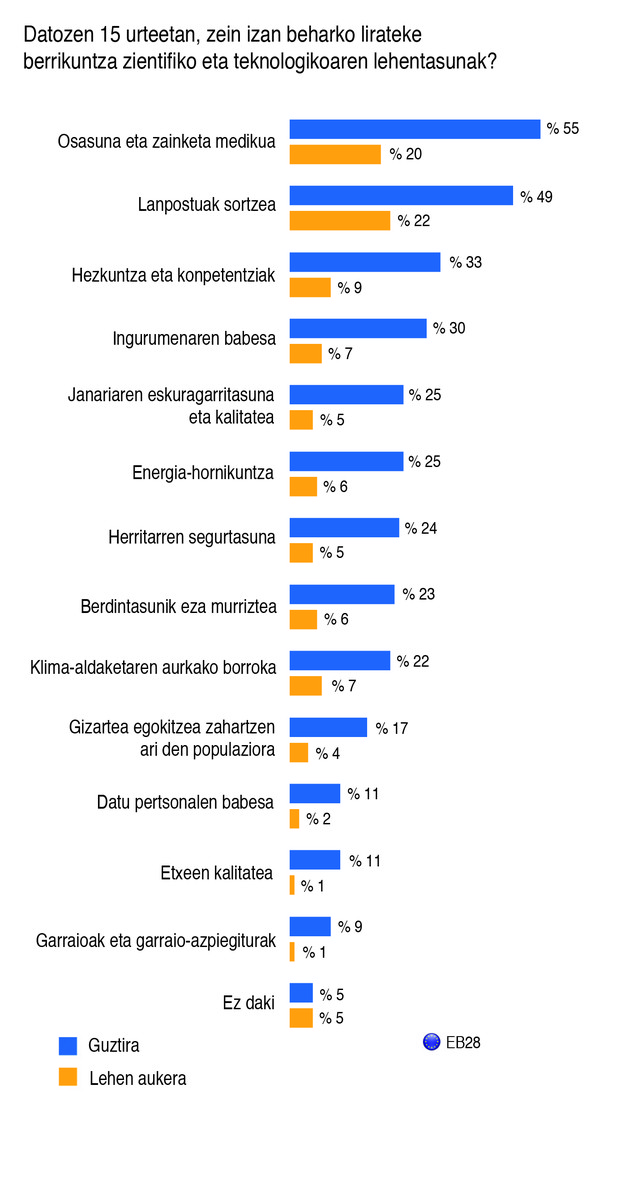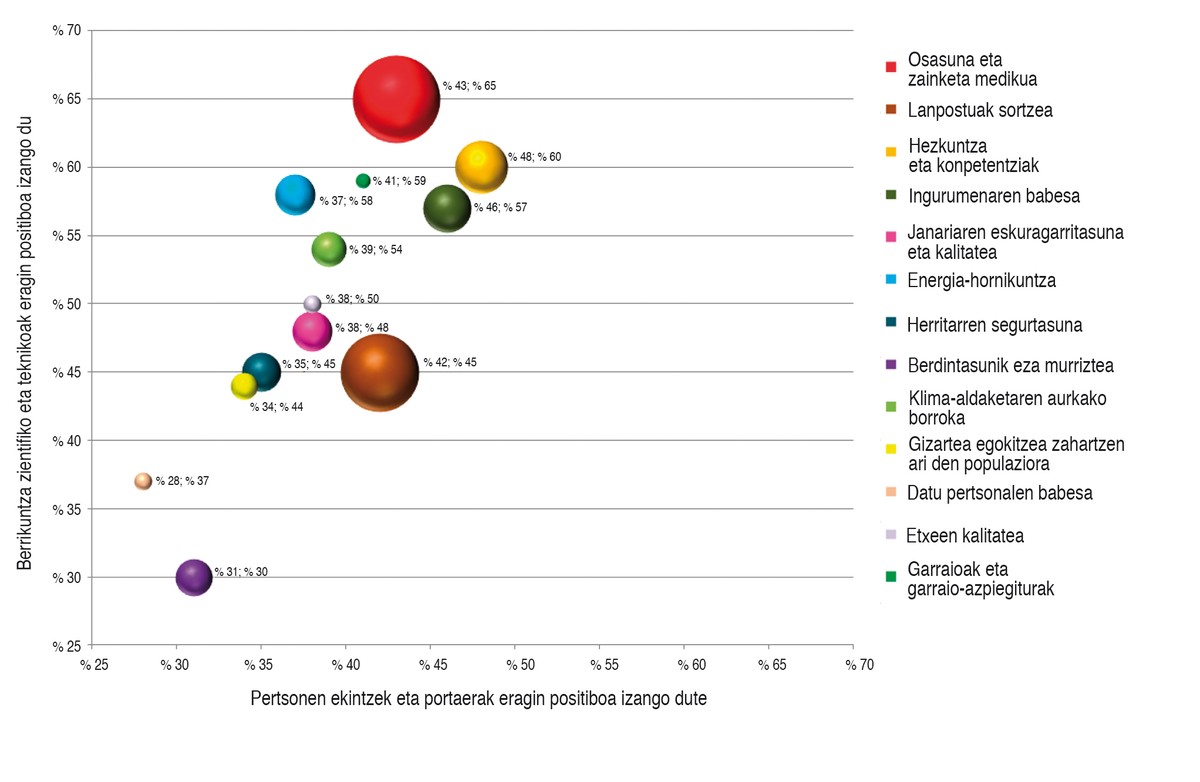Health and job creation, priorities for the next 15 years

The Eurobarometer 419 special survey on the vision of the science, research and innovation society was published in October. The introduction shows how, through the Horizon 2020 Research and Innovation programme, the European Union will allocate 80 billion euros more to research than in the previous framework programme, a 30% growth. In fact, scientific studies have pointed out in the introduction that the special Eurobarometer survey can help the Horizon 2020 programme.
In fact, this is the central theme of the report: identifying priority issues for Europeans and measuring their hope for improvement in scientific and technological innovation.
The survey includes in three aspects the responses of 27,910 people from the 28 member states of the European Union. The first part briefly collects data on European scientific education. The second includes, from a closed list of 13 topics, which are the most priority for Europeans. The third addresses the expectations of Europeans on thematic issues, according to two variables: what they believe that scientific and technological innovation will influence each of them and what people will influence their actions and behaviors.
Health and outstanding jobs
Two exercises were conducted to identify priority areas. They have chosen the top priority, one, and then the rest neatly until they complete the list of 4. Of the 28 member states, including France and Spain, they have chosen job creation as the top priority and 10 for health and medical care. The list distinguishes between Denmark and Sweden, whose main priority is the fight against climate change for its citizens.
For all the top priorities, health ranks first. For 55% of the population, health and medical care are the priority area, for 49% the creation of jobs, followed by education and skills (33%) and environmental protection (30%). These are, for Europeans, the four priority themes for the next 15 years, scientific and technical innovation. At the other end of the list are transport and transport infrastructures, the quality of households, the protection of personal data and the adaptation of society to the aged population.

Greater hope in science than in people
In the third part of the report, the survey deepens the expectations of Europeans. He has adopted each of the 13 topics listed and analyzed the hope of Europeans to improve them in science and their amount in human behavior. The results show that Europeans have more hope in scientific and technological innovation than in people.
Half or more of those responsible estimate that scientific and technological innovation will have a positive effect in seven areas: health and medical care (65%), education and skills (60%), transport and transport infrastructure (59%), energy supply (58%), environmental protection (57%), combating climate change (54%) and household quality (50%). This list is not the creation of jobs, although it is one of the main priorities for Europeans, since less than half consider that scientific innovation will have the capacity to generate employment in the next 15 years. Finally, the reduction of inequality is at the end of the list, although 30% of those responsible believe that science will have a positive impact on this matter.
Europeans are more pessimistic about people's actions and behaviour. And the same area has not exceeded the 50% barrier of those responsible hopeful. According to the population, the behavior of people can have beneficial effects on education and skills, but only 48% consider it. It is followed by environmental protection (46%), health and medical care (43%) and job creation (42%).
Comparing both variables, more than 40% of those responsible estimate that scientific innovation will benefit 11 of the 13 related areas. People's behavior, on the other hand, has only overcome this barrier in 5 areas. In addition, in all areas there is greater hope in scientific innovation than in the behavior of people, except in one in which, to reduce inequality, they have more hope in people, but only with a point of difference.

Buletina
Bidali zure helbide elektronikoa eta jaso asteroko buletina zure sarrera-ontzian











